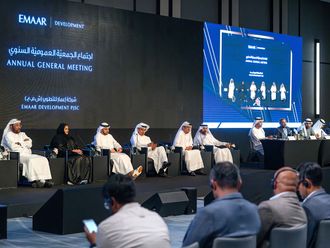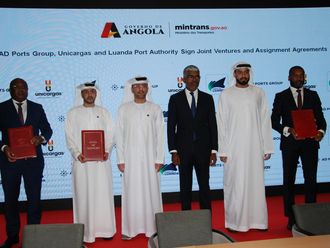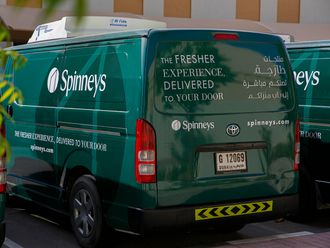
Dubai: 2017 was a year when all the global equity indices had a stellar performance, with emerging markets, developed markets, and frontier markets returning 34 per cent, 20 per cent, and 28 per cent, respectively. However, GCC equities were a massive disappointment with a price return of only 0.7 per cent, underperforming the global index by over 19 per cent — a performance which looks even worse given elevated level of volatility, while Qatar was the worst performer among the major global equity markets.
Looking ahead, although we expect volatility to remain elevated in the regional markets driven by geopolitics, we see some catalysts to cheer about in 2018, further underscored by the recent strength in oil price coupled with supportive earnings outlook.
We expect investors’ focus in Saudi Arabia in 2018 to be on two fronts — a) government’s economic and social policies, and b) market developments translating into potential inclusion in MSCI and FTSE EM indices — and our optimism on both these fronts translates into our expectations of recovery in KSA market in 2018. Although 2017 was disappointing for KSA market for performance (2017 return: 0.2 per cent) and turnover (836 billion Saudi riyals, -27 per cent year-on-year), market was buoyant for new listings and saw significant regulatory reforms, including change in settlement cycle and relaxation on Qualified Foreign Investors (QFIs) regulations.
Saudi’s main market, Tadawul, saw a total of seven IPO listing in 2017, with a total capital raise of around 1.8 billion riyals, while a new parallel market, Nomu, was launched in February 2017 for the listing of small and mid-cap companies — wherein nine new listings happened in 2017 with a total capital raise of 752 million.
Looking ahead, we see market momentum to build, well supported by oil price strength, supportive fourth quarter earnings, and anticipated market reforms. This is partly reflected in the market already with increase in global investors’ interest, with foreigners (including GCC investors) being net buyers of around 1.36 billion riyals ($362 million) of Saudi equities year-to-date (week ending January 18) compared to being massive net sellers of around 8.3 billion riyals (or 2.5 billion riyals excluding strategic stake sale) in 2017.
We also remain optimistic about KSA potential inclusion in MSCI and FTSE EM indices in 2018, with recently announced market reforms to pacify some concerns of the market participants (and the index providers), in our view. The Saudi Capital Market Authority (CMA) announced in January that it has further relaxed the registration process for QFIs while reduced the minimum asset under management (AUM) to $0.5 billion (from $1 billion). Additionally, CMA announced introduction to “omnibus like” facilities and changes to the Independent Custody Model (ICM), effective January 21, 2017. Noteworthy that custody issues was one of the major issues raised by FTSE’s latest review on KSA, and effective implementation of the ICM model will likely dictate the result of FTSE’s impending decision in March 2018.
Within the UAE markets, the fourth quarter earnings season started on a strong note, and market expectations reflect a sequential growth in Dubai and Abu Dhabi index companies of 9 per cent and 5 per cent, respectively. The two Dubai banks, ENBD and Dubai Islamic Bank (DIB), which have reported fourth quarter earnings so far have either met and/or exceeded market expectations while 2018 outlook remains supportive. Emirates NBD expects 2018 loan growth in mid-single digit (2017: +5 per cent), while expect margin to expand in the range of 8 bps and 18 bps, with further anticipated improvement in credit quality. DIB, on the other hand, expects to continue to have a double-digit loan growth in 2018 while expect slight margin contraction.
Within the UAE real estate, Emaar’s shareholders approved on January 14 at Dh0.42/share (around Dh3 billion) special dividend (record date: January 24, 2018). The company plans to pay an additional Dh1 billion special dividend, out of the total Dh4.8 billion Emaar Development IPO proceeds, contingent to shareholders’ approval in April 2018. However, the market remains dividend if the April dividend will be in addition to annual dividends, or will replace the annual dividend, and based on company’s plans to conserve cash, we consider the latter is more likely. The listing of Emaar Development has unlocked value for the parent company’s shareholders — well reflected by Emaar Development’s current price-to- book trading multiple of around 4.7 times. However, limited visibility on Emaar Properties’ capital plans continues to dampen investors’ sentiment in Emaar Properties, and we expect further colour on capex to dictate stock price performance.
Among the listed construction companies, Drake and Scull (DSI) announced that it has won a contract worth Dh250 million in Al Ain, while anticipate a further Dh750 million award win within the same master project in H1 2018. This is the first major contract win since the company completed equity restructuring in early Oct 2017, and we expect a high single-digit margin on this contract, at best. However, the stock price, since equity restructuring, has returned over 46 per cent and the company now trades at a price-to-adjusted September 2017 book value of over 3.5 times — despite it being loss-making since the second quarter of 2016.
The writer is Vice-President, Investment Management at Shuaa Capital and can be reached at im@shuaa.com












